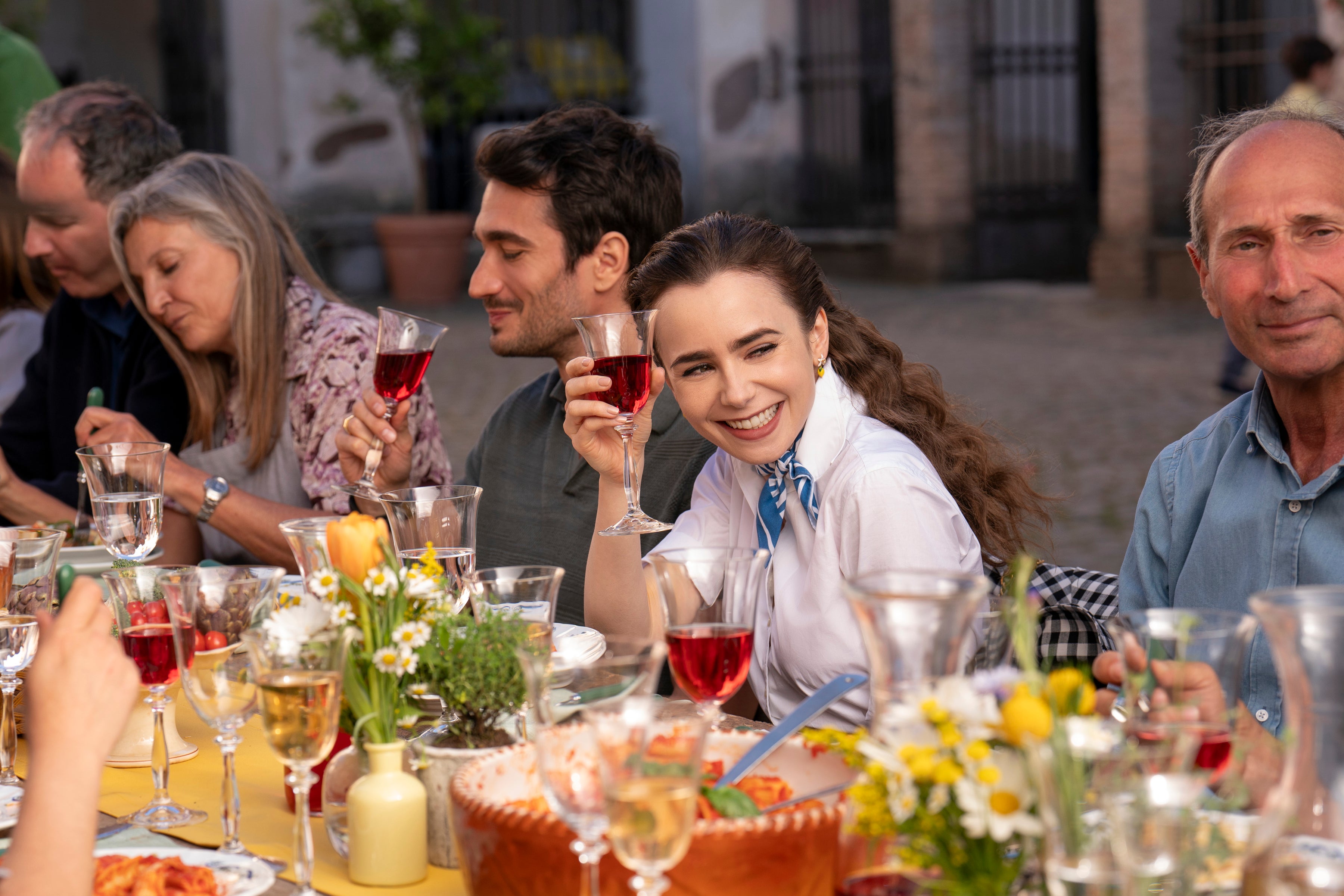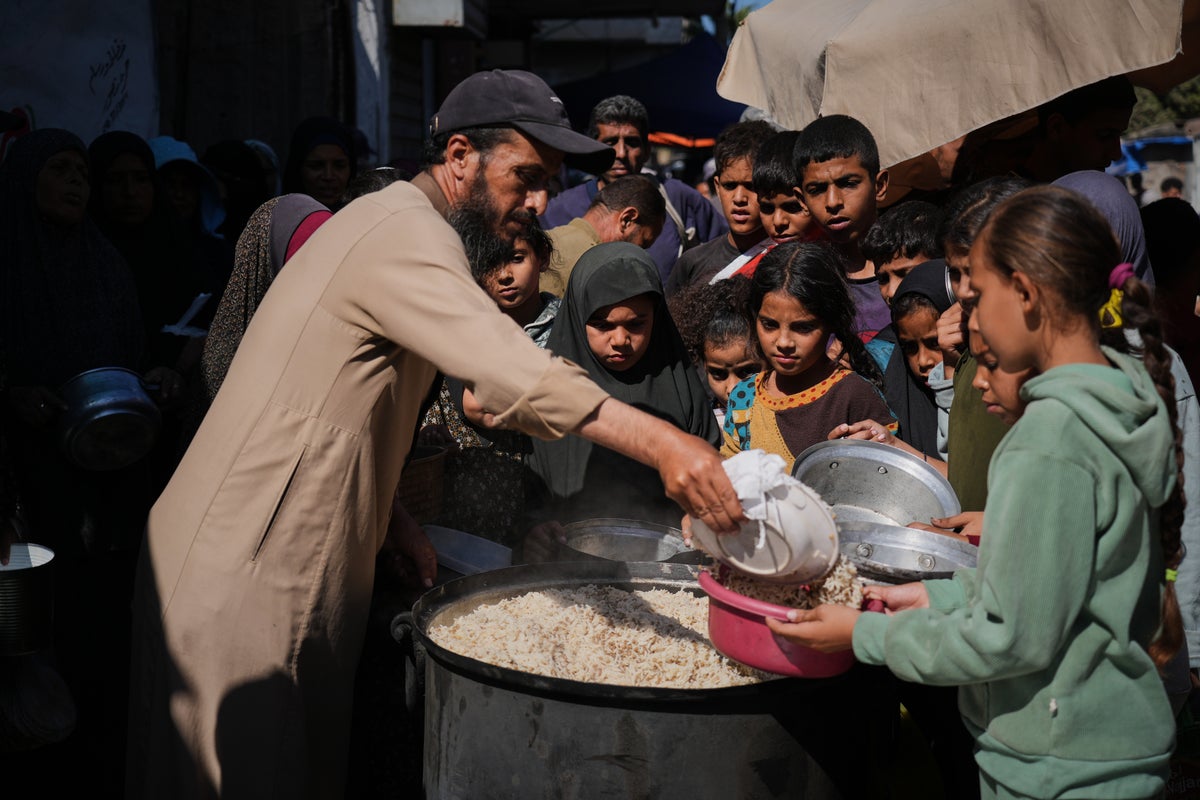The Independent's journalism is supported by our readers. When you purchase through links on our site, we may earn commission.
- Lifestyle
Millennials have long been painted as the generation who won’t grow up. But as a new study suggests the human brain has five distinct eras, with adulthood only kicking in at age 32, it might turn out we’re all stuck in arrested development for longer than we thought, writes Helen Coffey
 Thursday 27 November 2025 06:00 GMTComments
Thursday 27 November 2025 06:00 GMTComments open image in galleryEmily in Paris is still in her brain’s ‘adolescent’ phase (Netflix)
open image in galleryEmily in Paris is still in her brain’s ‘adolescent’ phase (Netflix)
Stay ahead of the curve with our weekly guide to the latest trends, fashion, relationships and more
Stay ahead of the curve with our weekly guide to the latest trends, fashion, relationships and more
Stay ahead of the curve with our weekly guide to the latest trends, fashion, relationships and more
 Email*SIGN UP
Email*SIGN UPI would like to be emailed about offers, events and updates from The Independent. Read our Privacy notice
When you think about it, the ages at which we decide a human being has crossed the threshold from childhood to adulthood are as strange as they are arbitrary.
The first accepted turning point in British culture comes at 16, when you can get a full-time job, leave school, buy a lottery ticket and consent to have sex. Then there’s the legal transformation into an adult at 18: you can live alone, buy alcohol and cigarettes, vote, gamble and get tattoos and piercings without anyone else’s say so. And finally, 21, when nothing much happens at all – unless you’re particularly keen on adopting a child, holding a minibus or pilot’s licence and getting pissed in North America – but which has, nevertheless, been deemed a final step into maturity.
Yet not one of these milestones is particularly reflective of our neurological development. Neuroscience has long shown that our prefrontal cortex, responsible for impulse control, decision-making, planning and problem-solving, doesn’t fully develop until around the age of 25. But now a new study has uncovered a whole new benchmark.
Based on brain scans of nearly 4,000 people, the research mapped evolving neural connections to identify five distinct “epochs”, or eras, for the brain, with changes occurring at four key ages: nine, 32, 66 and 83. Despite our ingrained societal ideas around when someone becomes a grown-up, these latest findings suggest that “adult mode” only kicks into gear in our early thirties. That’s when the architecture of our brains stabilises and coincides with a “plateau in intelligence and personality”.
I’m not at all surprised by this; if anything, I feel vindicated. Though lead researcher Alexa Mousley was quick to point out that they’re “definitely not saying that people in their late twenties are going to be acting like teenagers… It’s really the pattern of change,” the notion that I was an “adult” – responsible or otherwise – in my teens or twenties is risible.
Granted, I was always a late bloomer. At 16, I was still far too busy making up elaborate routines to the Centre Stage soundtrack with my friends to contemplate coitus. At 18, I may have gone off to university, but I was also shamefully clueless (during a “how to cook pasta” lesson with my mother before leaving home, I really did respond with, “But how can I tell?” when told to wait until the water was boiling). At 21, I dressed up as a dolphin for my birthday party in a grotty nightclub, snogged a stranger, vomited copiously and turned up to my all-year lecture the next day still drunk and singing sea shanties.
 open image in galleryEmbrace the ‘hot mess’ era of your twenties (Getty/iStock)
open image in galleryEmbrace the ‘hot mess’ era of your twenties (Getty/iStock)I’d like to say that my twenties saw me develop some semblance of sophistication – and indeed, at the tail-end of that decade, I did finally find my way onto a more solid career path and started my first adult-feeling relationship. But, in all honesty, that period was mostly typified by hapless stumbling between dramas. There was the morning I slept through my alarm and turned up 90 minutes late to run a workshop for 500 young people; the day I got to the station and realised I didn’t have enough money to buy a train ticket to work; the time I accidentally built up thousands of pounds in debt when I moved out of a shared flat and forgot to cancel all the direct debits.
I won’t even get into the romantic mishaps – we don’t have that kind of time – but suffice to say they were plentiful and ran the gamut from chaotic to embarrassing. “Making good decisions” was as alien a concept as flossing my teeth at that age. It would have been my “hot mess” era, had I actually been hot.
The notion that I was an adult – responsible or otherwise – in my twenties is risible
When I look back, the watershed moments that marked my transition into being a proper grown-up person with her s*** together are undeniable – and nearly every single one happened at around the time identified by the study. At the age of 31, I got a job at this very publication, the first time I really felt like I was intentionally steering my career in the desired direction. At 32, I identified the coastal town where I wanted to build my life as an adult. At 33, I broke up with my long-term partner because we both realised it wasn’t right – and that, in many ways, we’d always felt like adolescents playing house together.
My generation, millennials, have long been accused of refusing to grow the heck up. We’re buying homes, getting married and having children later, while continuing to cling on to childhood obsessions with Disney and Harry Potter. But aside from all the socio-economic factors that have led to this perceived arrested development, maybe we didn’t have it so wrong after all. Maybe “kidulthood” isn’t something to be denigrated but a completely natural phase of life, embodying the chaotic whirlwind of our twenties before we wise up, settle down and get comfortable in our own skin.
It's not to say we should stay Peter Pans forever. Just that your twenties are for making mistakes, learning from them and figuring out who you want to be. So the next time you miss your train, mess up your finances or go home with someone questionable, just apologise, shake it off – and explain that science made you do it.
More about
adultadulthoodChildhoodBrainNeuroscienceJoin our commenting forum
Join thought-provoking conversations, follow other Independent readers and see their replies
Comments


